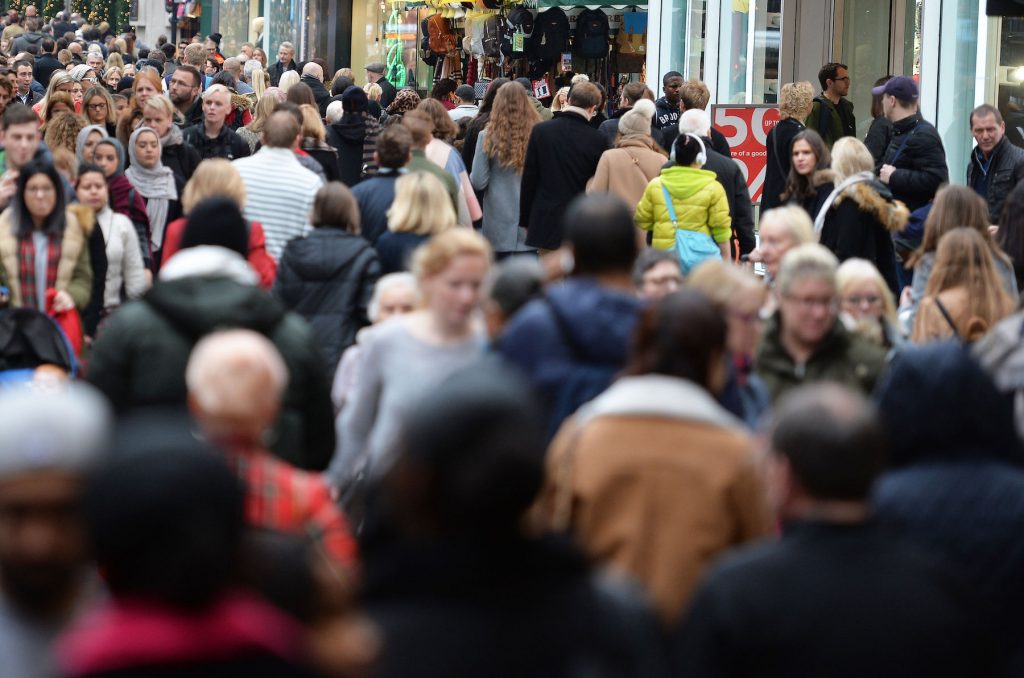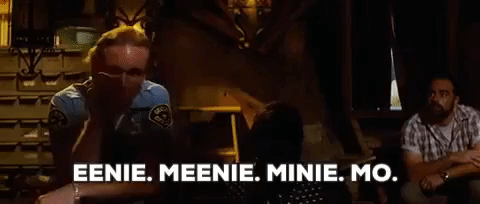
Small businesses could be hit hardest by the government’s changes to business rates. So why do it?
Business rates are a tax paid on property that isn’t used for living in – so anything from schools to offices to shops have to pay them. They’re based on the value of the property, rather than anything that’s done in it.
The properties are being revalued in April, and although lots of businesses are expecting small falls, around a third are expecting very sharp rises, with a fifth - mainly in the South East - expecting a rise of more than 40% immediately. A fifth of the businesses that will be hit with a rise are saying they could be forced to close.
So why are business rates going up?

It's just the way things are, apparently
This is just one of the ways governments tax businesses. Taxing people on where they do their business, rather than how, apparently goes back to 1601 – although the business rates system we have now dates back to the 1990s.
It’s a tax on the value of the property the business holds, not the value of the business itself. You pay based on how much you could rent the property for, and because rental values have changed hugely in the time since the last valuation, especially in places like London, some businesses are seeing a big leap in rates.
It means a big chunk of the tax businesses pay doesn’t depend on how much profit they make, but on the value of the property they do their work in – something they don’t have much control over. This is the principal lots of people are opposed to. The Federation of Small Businesses (FSB) says it's unfair – it doesn't take into account how much people are able to pay.
It’s supposed to raise money for the government
Business rates are a big proportion of the government's tax intake from businesses. The group in government that examines its balance sheets, the Office for Budget Responsibility, estimates that business rates will raise the same proportion of income for the government next year (after the rate change), as it does this year (before the rate change). In other words, it's not about the government making more money.
Some people will pay more and some people will pay less. Philip Hammond insisted that the rate rise is “revenue neutral” – the government won’t be getting any more money from it. He insists it’s just making it fairer, and by revaluing their properties businesses in 80% of council areas will see their rates fall on average.
The problem is the way it’s being distributed. Which doesn’t seem that fair – according to the FSB the costs for a small business to run are at their highest since 2014 – it tends to be these businesses that hold city centre shops or offices which are more valuable, so it’s these businesses that will be affected the most.
It's already been delayed by two years
Business property values are supposed to be reassessed every five years, but it was delayed in 2015 – the government said it was to protect businesses from sharp rate rises – critics said it was to protect the government from a political storm just before the general election.
One major argument is that if business rates do have to exist, they should at least be revalued each year, to limit the shocks to business.
People say it’s favoring big tech companies and e-commerce businesses, and harming small high street shops

Businesses like Amazon and ASOS have big out-of-town warehouses, not a high street presence. The rents haven’t risen so much on their properties so they won’t see such a big spike.
Bookstores are a good example – Waterstones in Bedford, near London will pay 16 times more in business rates per square foot than the nearby Amazon distribution centre. Because all Amazon’s business is online, it doesn’t need the valuable town centre store, which puts it at a big advantage when you think that it is in direct competition with high street bookstores.
Another big business group, the Institute of Directors, says the business rate system is out of touch with our 21st century economy, for exactly this reason. The government should be working out how to effectively tax businesses – based on the way the biggest businesses (things like Amazon) work, it says.
Who makes these decisions?

The property is valued by something called the Valuation Office Agency, and the business then pays tax based on that figure. As with all taxes, the final decision comes down to the government – the chancellor, to be precise, with input from Sajid Javid, the business secretary. And despite huge amounts of pressure it looks like he’s not planning on changing the system any time soon.
A treasury source told the Guardian newspaper that the chancellor, Philip Hammond, was “alive” to the problems small business are facing but that “it isn’t something that can be changed overnight”.
The government has faced huge pressure on this from its own MPs, opposition MPs, business groups and just about everyone else.
They're standing by it for now, accusing critics of overplaying the risks – but with the reaction they've had to the policy, it's likely they'll say something about helping the hardest hit in the budget next week.



